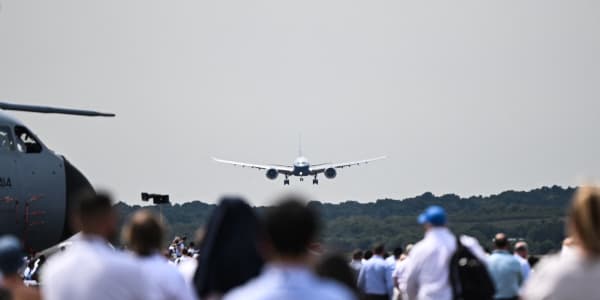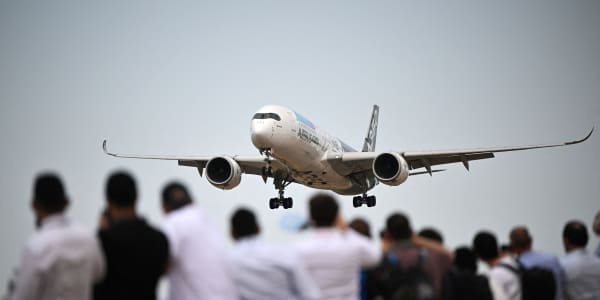Airplane passengers are benefiting from the drive for airlines to become more efficient, with some carriers even adopting the "add-on" model associated with budget airlines, analysts have told CNBC.
Low-cost carriers have put increasing pressure on many of the European airlines with customers feeling that they offer more for your money. In a recent survey, Liberum found EasyJet was perceived by travellers as the best value for money, trumping the likes of Virgin Atlantic.
European airline profits are under pressure, forcing them not only to cut costs, but also to look at how they can keep and attract customers by giving them a better experience.
Read MoreThe latest air warfare: Seat sizes
"Before low-cost carriers came on to the scene, airlines used to give passengers things for free that the passengers didn't value. Now it is better to separate out and sell customers something they value and not deliver it as part of the cost base," John Strickland, director at JLS Consulting, told CNBC in a phone interview.
"What is happening now is more positive. If you go away from the premium end of the range, the option is to pay as you go for different elements of service such as choosing different seats or buying meals. In economy you could buy a business class meal."
The add-on service is something most associated with budget airlines but is increasingly being offered by other carriers.
On the other end of the spectrum, the Middle East airlines are taking measures to create a exclusive experience. Qatar Airways recently said it was scrapping its first class seating from most of its fleet to create a two tier system of economy and "super business class". Meanwhile, Emirates has created first class "cabins" in an attempt to create a private suite on board.
Many of the changes, which include the popularity for twin aisle jets, are fueled by customer demands, according to Damien Lasou, global managing director for aerospace and defense at Accenture.
Read MoreConnected from the clouds: Go-ahead for 3G and 4G on planes
"Nowadays, the aircraft structure is changing. There is an acceleration of the cabin refurbishment cycle because of the demand coming from the passengers. This is forcing airlines to push for new products," Lasou told CNBC in a phone interview.
Digitization
An integral part of on board experience is the access to digital content, from films to fast wifi.
Many are carriers already offer consumers the ability to connect mobile devices to wifi on an airplane – a service that is currently quite expensive.
Read MoreBumped from a flight, app helps fliers collect airline fees
But international regulators are looking to open up the possibility of using a mobile network on board. In November, the European Commission, the European Union's executive arm, gave the green light for 3G and 4G services to be used on aircraft, while U.S. regulators considered a similar move.
"Passengers are demanding digital tech on the aircraft," Lasou said.
"We find quite strange to see complex in flight systems, where today you have everything on your tablet, and we don't understand why you have to wait 20 minutes before you can watch a movie."





